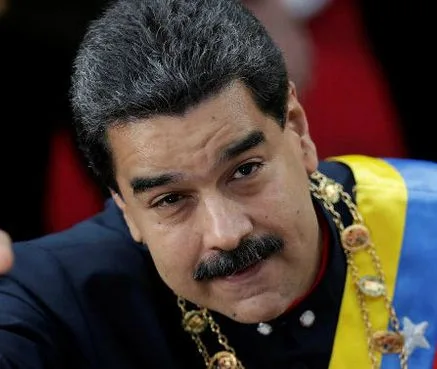Venezuelan opposition parties to be barred from next year’s presidential elections, Maduro says
President Nicolas Maduro announced Sunday that leading opposition parties will be barred from taking part in next year’s presidential vote after they boycotted mayoral polls. If it is enforced, the move would virtually assure Maduro’s reelection in 2018 despite national poll number of less than 30%.

Venezuela President Nicolas Maduro
Parties that would be barred include those of key figures who have led street protests against his presidency, such as Henrique Capriles, Leopoldo Lopez and others, Maduro told reporters after casting his vote in the municipal polls.
“That’s what the National Constituent Assembly set out,” he said, referring to a controversial Maduro-allied special powers legislature whose legitimacy has been questioned by many in the international community.
“If they don’t want elections, what are they doing? What’s the alternative? (Civil) war?” the president asked, visibly angry.
While municipal elections were under way across the country, Maduro clearly had his mind on the 2018 presidential race in which he plans to seek reelection – despite a national approval rating of 27%.
Crisis-weary voters meanwhile appeared to be staying away in droves from mayoral elections that the opposition is already boycotting. A few hours after polling stations were supposed to open, 98% of the 14,000 facilities were up and running, according to the National Election Board (CNE).
Yet turnout in many places appeared to be light, and in others extremely so.
In terms of politics, the local election stakes might seem low. Yet a failure in municipal votes could be seen by many a sign the government had lost the support of the massive lower-income base it relies on to stay in power and in charge of the state led economy.
Luis Emilio Rondon, a member of the electoral board, said that there were some irregularities involving pro-government candidates who are running some polling stations. He did not immediately say where, or address the extent of the issue.
But voting “cannot be restricted, obligatory, or supervised by people with political interests,” Rondon told reporters.
He also said he had had reports that in some polling stations run by the ruling PSUV, officials were making sure that those who have a special social benefits card get out to cast their votes. He said some of these voters’ “Fatherland Card,” an electronic card that helps them get scarce food and medicine, was being scanned.





















